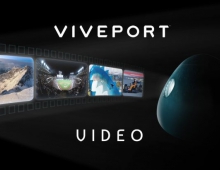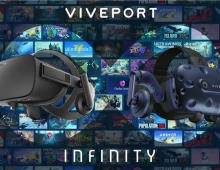
HTC Takes VR lead in China
Shipments of virtual reality headsets totaled 300,000 units in China in 2016, making it the world's second-largest market with a 15% share, according to Canalys.
HTC took the top spot, grabbing 18% of the total VR headset market by volume. It shipped more than 50,000 of its Vive headsets in China. Local vendor DeePoon came a close second, taking a 17% share. It has two headsets on the market to compete with HTC. In 2016, almost 70% of DeePoon's shipments were of its M2, a smart VR headset.
"HTC will need to continue its attack on the B2B market to ensure it maintains its lead. It is supplementing a good product with efforts to build a successful ecosystem by encouraging startups and content makers to produce engaging user experiences," said Canalys Analyst Jason Low. "DeePoon is chasing HTC in China and owes much to its partnership with Samsung, suppliers of the M2's silicon and display. This relationship has been vital to lower the cost of ownership of VR systems and maintain the VR experience at a decent level."
Sony's consumer focus and low PlayStation 4 installed base led it to ship fewer than 30,000 units, taking fourth place in China despite leading in most other markets. "To boost PlayStation VR demand in China, Sony must ensure its AAA VR content is launched there at the same time as in other countries," said Low.





















